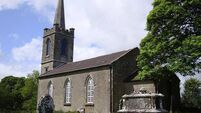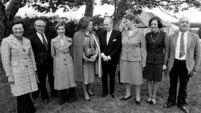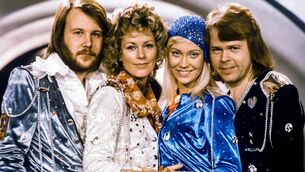Hotel owner recalls olden days in Foxford
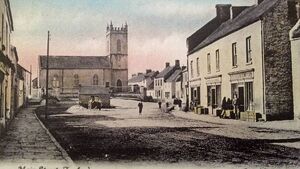
Foxford in the early 1900s - the building on the right is now the Moy Hotel. The weighbridge at the front of the Church of Ireland is visible in this photograph.
Recently, I spent a pleasant morning with Tommy Noone, the proprietor of the Moy Hotel in Foxford. His wife Maureen, nee Reynolds, who he married in 1974 was also with us and we reminisced on how life used to be. Tommy is a proud man when he recalls with fondness how hard his father worked during his childhood.
Tommy continued this family tradition of hard work with his construction business which he founded. Before that, he worked in Manchester in 1965 where he met his wife Maureen at the Carousel Ballroom in the city.
His latest dream come true is the opening of the Moy Hotel in October 2022. In this piece, Tommy recalls how his father introduced him to hard work through his example of maximising the use of his smallholding in Belgarrow, near Foxford. His father emigrated to the USA when he was 20 in 1920 where he earned enough money to buy a horse and mowing machine on his return to Foxford.
Tommy recalls that there was a market each week on Tuesday in the Market Square and there were four fairs held annually - they were on May 15th, October 3rd, November 9th and December 10th. This latter fair was for Christmas and the family would buy their Christmas needs with the money made at the December Fair.
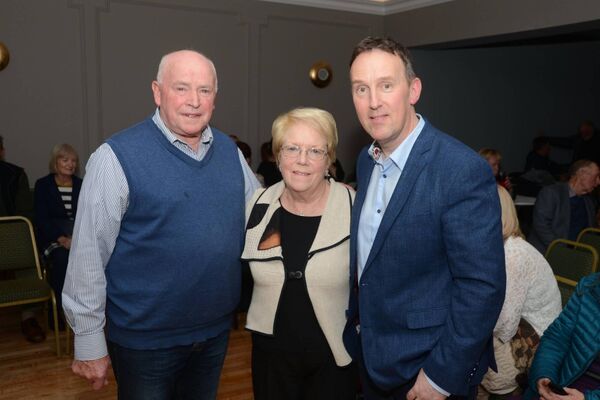
Tom’s dad used to bring hay, potatoes, turkeys and vegetables to the market and he would bring cattle and weanlings to the fair, especially to the October Fair when they would be ready for sale. The cattle were sold on the side of the street to the jobbers who would come from near and far to buy at the fair. The jobbers wore brown boots and had a short stick with them. They would spit on their hand and clasp the hand of the seller to clinch the deal. The handshake sealed the bargain and the farmer went away with the agreed price.
There was a weigh-house in the Square in front of the Church of Ireland. The farmers used to weigh the cart of hay, which would determine the price the farmer got. The same was true for the potatoes and the vegetables. The bar in the Moy Hotel is named after this market, hence the Haymarket Bar.
There was a larger weighbridge at the Woollen Mills and the farmers would drive the cart onto it to be weighed.
Tom used to get a day off school when his father Bill would bring the flour by horse and cart from the station to O’Hara’s Bakery on the Main Street. The horse had to be kept calm because he would bolt when the steam engine revved up when leaving the railway station.
His father worked very hard and used every acre of land that he had as well as taking con acre to grow potatoes for sale and for the household table. They ploughed the land and Tom used to lead the horse and keep the plough straight before setting the potatoes and vegetables. The single mowing machine was used to mow the grass and the oats. The grass was saved as hay and then the oats were cut and put into sheaves and stooks before it was brought to the thresher. This was a big day for the area when they would have the meitheal.
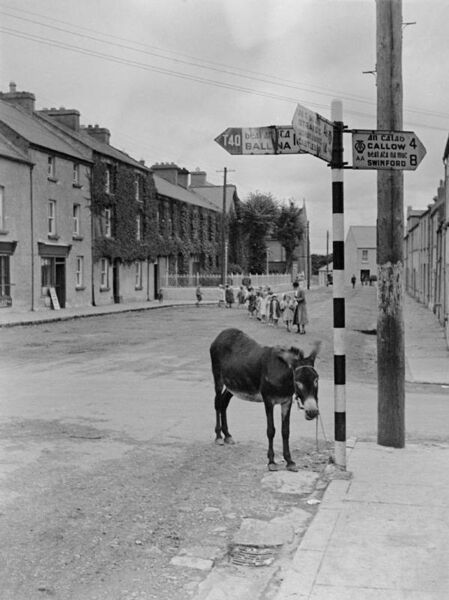
The horse and cart were used for a variety of purposes. Once they were bringing a piano for the local guard from one house to another and the keys started to play and the horse bolted and set off down the road! Bill could hardly keep up with him. Fortunately, there was a meter reader with the ESB coming down the road and he threw his jacket in front of the horse and this calmed the horse.
Bill used to deliver milk to the people of the town as well. He had a dairy at the house and had six cows which he sometimes fed on the long acre because he did not have much land for them.
When Bill had finished his work at home he would leave for England to work on the hay and the harvest and then return around Christmas with his hard-earned and much-needed money to run the household and the farm.
This was the nature of life when Tom was a boy and his father and his neighbours were hard-working people who toiled day and night to make a living in the difficult days of former years. They would be tremendously proud of Tom and Maureen's achievement in taking over and restoring the Moy Hotel in the heart of Foxford. Here's to its future success.

